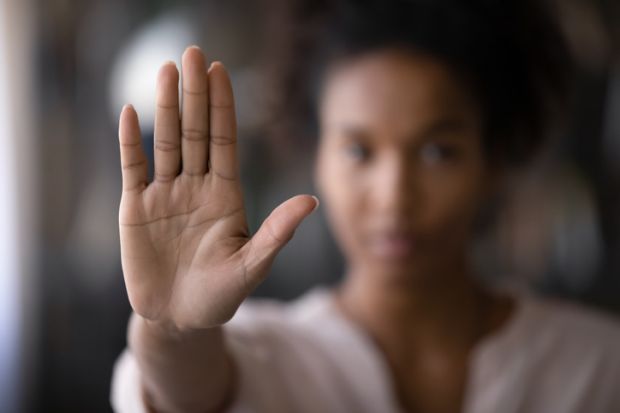More than half of students at the University of Oxford reported being sexually harassed within a single year, according to new research, with the authors warning that the prevalence of sexual violence in UK universities could be far higher than among the general population.
Researchers said self-reported statistics on the scope of the problem were essential to adequately implement prevention, but data in the UK was limited.
The paper used data from the cross-sectional Oxford Understanding Relationships, Sex, Power, Abuse and Consent Experiences (Our Space) survey, which was distributed to all Oxford students in May 2021.
Of the 1,318 respondents who answered at least one question, 21 per cent said they had experienced at least one act of attempted or forced sexual touching or rape within the previous year.
And the findings, published in the Journal of Interpersonal Violence, also show that 53 per cent experienced at least one act of sexual harassment over that time.
Bridget Steele, lead author and an incoming lecturer at Oxford, told Times Higher Education that sexual violence at higher education institutions was a “prevalent and global public health issue”.
“Our findings contribute to a growing evidence base that shows universities in the UK are not immune to this problem and point to what activists and student groups in the UK have been saying for decades, that sexual violence is pervasive among university students,” Dr Steele said.
“Under-reporting of sexual violence through official university pathways and law enforcement makes it challenging for institutions to understand the true scope of the problem.”
Dr Steele said the research underlined the importance of funding access for students to highly trained professionals through confidential and easy to understand referral pathways.
The paper, which says that women experienced higher rates of sexual violence, also shows that attempted forced sexual touching was far more common than forced sexual touching or rape.
The most common forms of sexual harassment were sexist remarks or jokes.
The authors said the results revealed that the prevalence of sexual violence could be far higher than that experienced in the general population, and underlined the need for continued monitoring to develop prevention and response strategies.
“The existence of sexual violence in universities may not seem intuitive,” said Dr Steele, who founded the Our Space study, one of the first studies of its kind in the UK to investigate the prevalence and nature of sexual violence among higher education students.
“This environment is populated by highly educated people who are presumably aware of their rights and responsibilities.”
But she said it often occured between the ages of 18 and 24, when most survivors knew the perpetrator, and incidences were often linked to factors such as large gatherings, peer support for sexual violence, the absence of guardianship and environments where alcohol was available.
As a result, universities, where many of these factors converged, could face an increased likelihood of sexual violence, said Dr Steele.
An Oxford spokesman said the university took sexual misconduct “extremely seriously” and “expect[ed] all members of the university to behave appropriately at all times”.
“We recognise that universities play a crucial role in tackling this important issue. Our annual campaign, ‘Oxford Against Sexual Violence’, reflects the university’s strong condemnation of sexual violence or harassment of any kind, and signposts students to the dedicated services and support available to them, including the university’s Sexual Harassment and Violence Support Service, which provides free, confidential support and advice,” the spokesman said.
“We have this year launched a new consent programme for new and returning students to complete before the start of term and will be engaging with the ongoing Our Space project to understand more about the picture of sexual violence and harassment, both in Oxford and the sector more widely, as part of our ongoing review of how we can best support our students and ensure they feel safe and supported.”
Register to continue
Why register?
- Registration is free and only takes a moment
- Once registered, you can read 3 articles a month
- Sign up for our newsletter
Subscribe
Or subscribe for unlimited access to:
- Unlimited access to news, views, insights & reviews
- Digital editions
- Digital access to THE’s university and college rankings analysis
Already registered or a current subscriber? Login








